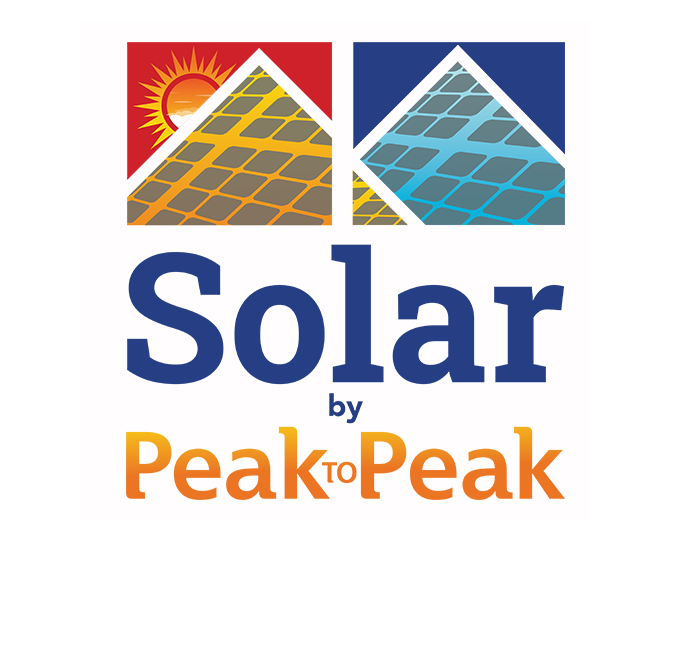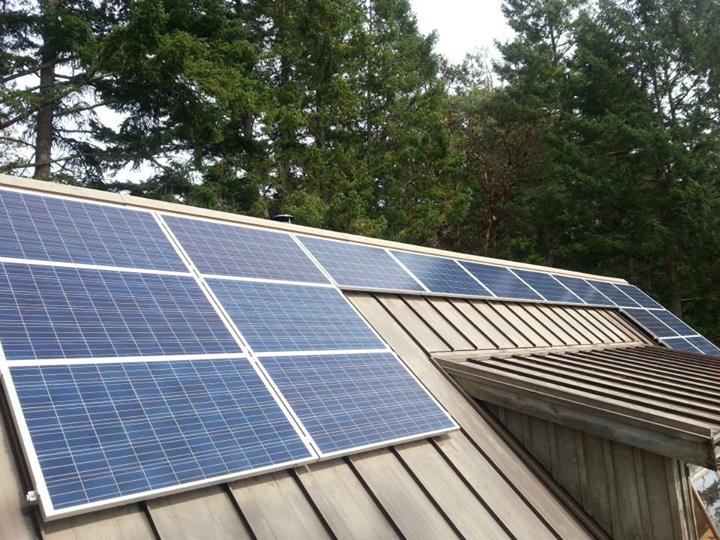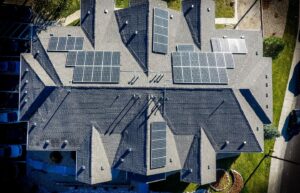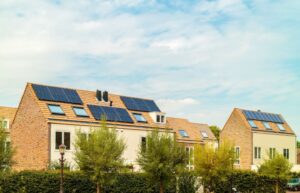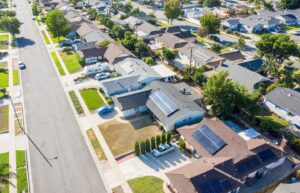Solar panels are becoming increasingly popular as people look for ways to reduce their energy bills and become more environmentally friendly. One question that often comes up is whether or not it’s possible to put up solar panels on your own. The answer is yes; you can definitely install solar panels by yourself. However, you should know a few things before you start. This article will discuss the pros and cons of mounting solar panels yourself, as well as some tips to help you get started.
Pros of DIY Solar Panels
Let’s talk about some of the reasons why people choose to install their own rooftop solar panels and solar panel system. There are several main ones, and we will break each of them down for you. Let’s do it!
Money Savings
The biggest pro of doing solar panels and a solar array yourself is that it can save you a lot of money. If you’re handy and have some experience with home improvement projects, then you can probably install solar panels for a fraction of the cost of hiring a professional.
Custom Setup
Another advantage of solar panel installation is that it allows you to customize your solar array. If you have a specific goal in mind for your solar setup, then installing it yourself will allow you to ensure that everything is exactly how you want it.
Independence
Some people like installing their own solar panels to gain a new skill and a sense of independence. Especially for those living off-grid folks, learning how to install, maintain, fix, and operate essential equipment like power and water systems is much more important than it is for those who live in cities or suburbs.
A Word of Caution
First, solar system installation is not a quick or easy project. It will likely take several weekends to complete, so be prepared to set aside some time.
Second, solar panel installation requires working with electricity, which can be dangerous if you’re not careful. Be sure to follow all safety precautions and hire an electrician if you’re not comfortable working with electricity yourself.
Third, give yourself some grace. Although the concept of putting in solar panels and a solar panel system seems pretty straightforward, it’s actually fairly complicated, so take your time and prep for many mistakes. It will likely be a major trial and error process, which can become frustrating since you’ll have wires going through your house, and you’ll be working with expensive materials.
Cons of a DIY Solar Project
In this section, we will go over some of the things that deter people from installing solar panels on their own. Here we go!
Risk Factor
The biggest con of putting up solar panels yourself is that it can be risky. Solar panel installation requires working with electricity, which can be dangerous if you’re not careful. Be sure to follow all safety precautions and hire an electrician if you’re not comfortable working with electricity yourself.
Expenses
Additionally, solar panels cost a lot, so if you make a mistake during installation, you could end up spending more money in the long run. Solar panels are a significant investment, and you want to be sure that they’re installed correctly the first time.
Inconvenience
DIY solar system installation can also be quite inconvenient. It will likely take several weekends to complete, so be prepared to set aside some time. Additionally, solar panel installation requires working with electricity, which can be dangerous if you’re not careful. Be sure to follow all safety precautions and hire an electrician if you’re not comfortable working with electricity yourself.
Why You Should Consider Calling Professional Solar Installers
If you’re considering solar panel installation, we strongly recommend that you call a professional. Solar panel installation is not a quick or easy project. A professional Golden solar energy system installation company, like Denver’s Solar by Peak to Peak, will be able to install your solar panels quickly and safely, so you can enjoy the benefits of solar power without having to worry about the risks. Here are some of the reasons why we’re suggesting that you hire a pro to install your solar panels:
Safety
Installing solar panels requires working with electricity, which can be dangerous if you’re not careful. A professional solar installation company will have the experience and expertise to install your solar panels safely, so you can avoid any accidents or injuries.
Speed
A professional solar installation company will be able to install your solar panels much faster than you could do it yourself. Solar panel installation is not a quick or easy project, but a professional solar installer will be able to get the job done quickly and efficiently.
Warranty
When you hire a professional solar installation company, they will usually include a warranty with their services. This means that if there are any problems with your solar panels after they’re installed, the solar company will come out and fix them for free.
Maintenance
A professional solar installation company will also be able to provide you with maintenance and repair services for your solar panels. This means that if there are any problems with your solar panels in the future, you can simply call the solar company, and they’ll come out and fix it for you. If you install your own solar panel system, you’re the one that has to maintain it. And depending on how many solar panels you need or have, a lot can go wrong.
In conclusion, we recommend that you hire a professional solar installation company to install your solar panels. Solar panel installation is not a quick or easy project, but a professional solar installer will be able to get the job done quickly and efficiently. Additionally, when you hire a professional solar company, they will usually include a warranty with their services. This means that if there are any problems with your solar panels after they’re installed, the solar company will come out and fix them for free. Finally, a professional solar company will also be able to provide you with maintenance and repair services for your solar panels.
How Many Solar Panels Do I Need?
In order to determine how many solar panels you need to power your home to maximize solar panel output efficiency, you’ll first have to measure the space and calculate your home’s energy needs. This section will tell you how.
How Much Energy Do You Use?
To begin, you must calculate how much energy your household consumes on average each day. This will provide a reference point for how much solar power you’ll need to generate. You may estimate your home’s daily power usage by consulting your previous electricity statements. If you don’t have any previous bills, use sn online DOE-sponsored online calculators.
How Much Sun Does Your Home Get?
After you’ve figured out how much electricity your home consumes on average, you’ll need to figure out how much sunlight it gets. This data will aid you in selecting the appropriate type and size of solar panels for your needs. You may use an online solar insolation calculator like the one provided by the National Renewability Energy Laboratory (NREL) to determine how much sunshine your location receives.
Calculating Your Solar Panel Needs
You can now calculate the number of solar panels you’ll need to power your house with these two pieces of information. Here’s a simple calculation to follow:
Number of solar panels needed = (Daily energy usage in kWh) / (Solar insolation in kWh/m2/day)
For example, if your home uses 30 kWh of energy per day and you live in a location that gets 4 kWh/m2/day of solar insolation, you would need 7.5 solar panels to meet your home’s energy needs.
Average Solar Panel Wattage
The wattage of a solar panel is determined by its type and size. The majority of solar panels are manufactured from silicone. When we say “most solar panels,” we’re talking about 95% of solar panels. Monocrystalline, polycrystalline, and film solar cells are the three most common types of silicon solar panels.
The average solar panel wattage is 150 to 200 watts for monocrystalline panels and 135 to 175 watts for polycrystalline panels. Thin film solar modules have a power range of 50 to 150 watts.
Keep in mind that these are only averages and that your requirements might vary depending on your unique circumstances.
How To Measure Your Roof’s Surface Area
After you understand how many solar panels are necessary to cover your energy consumption, you have to verify they’ll actually fit on your rooftop. That entails measuring the roof space that will be allotted for solar panels. This helps ascertain the number of solar panels that can go on your roof. To measure your roof area, use these dimensions:
- Length
- Width
- Roof pitch
If you need more solar panels than what will fit on your rooftop, you can usually rig something up on the ground and connect it to the rest of your solar system. Obviously, depending on how many solar panels you need and how many solar panels fit on your roof, you’ll want to place the ground-mounted solar system in an area with minimal shadows and obstructions.
If You Do Decide To Install Your Own Solar Panels:
Suppose you’re considering installing a solar system by yourself. In that case, we recommend that you call a professional local solar installer like Solar by Peak to Peak to get a free solar panel quote first. This will give you an idea of how much the project will cost and whether or not it’s feasible for your home. Once you have a quote from a professional solar installer, compare it to the cost of materials and labor for doing the job yourself. If you decide to install solar panels yourself, be sure to follow all safety precautions and hire an electrician if you’re not comfortable working with electricity yourself. Thanks for reading!
